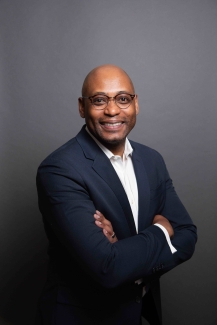Event

Lecture Series:
The Penn Public Lectures on Classical Antiquity and the Contemporary World
Professional Classical Studies and its Others
Speaker: Patrice D. Rankine, Professor in the Department of Classics and the College, University of Chicago
Respondent: Kathleen M Brown, David Boies Professor of History and Lead faculty historian on the Penn and Slavery Project
Lecture 1: "Fiery Towers: A Professional Classicist’s Manifesto"
Abstract: In “Fiery Towers,” I entertain calls to “burn down” professional classical studies as it is currently constituted. Professional classical studies is not the same phenomenon as a general attention to the lessons of the past, or even the serious pursuit of a knowledge of antiquity. The professional study of classical philology is a historical artifact with an even more certain genealogy (a beginning, middle, and foreseeable conclusion) in the U.S. than in Europe, where the fiction of an uninterrupted, unbroken continuity attends the history of classical philology (e.g., Wilamowitz 1982). Professional classical studies in the U.S. emerged during the 19th century amidst the turbulence of the Civil War and the Industrial Revolution. Despite its claims to antiquity, and as such its concealment of contemporary investments, the discipline grew alongside other academic fields more obviously tied to slavery, race, class, and commerce. This history has led to often impassioned pleas for revision and reparation within the discipline — if not its wholesale eradication. I interrogate conciliatory moves within the discipline that capitalize on the engagement of non-Europeans, e.g., African Americans, Native Americans, or even the global scope of professional classical studies. I recognize “burn it down” as an analytical meme that has been part of a persistent anti-professionalism within the field. Outside of the discipline, the idea of the meme of self-destruction, which is evident as far back as the Confederate burning of Richmond, Virginia in 1865, makes sense of the more recent crisis within professional classical studies. Drawing from the affective registers of the meme, I implicate professional classical studies within a broader history of American colleges and universities. I show that self-destruction, or anti-professionalism, has always been a projection from within the field, one that can be useful and constructive. I leave the context of colleges and universities after this lecture to other sites of study, the streets and home.


The series is supported by the Arete foundation in honor of Edward E. Cohen.
